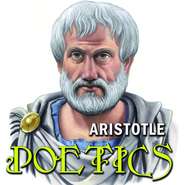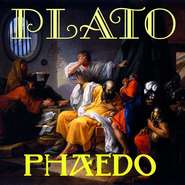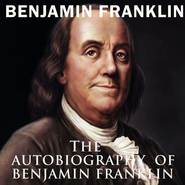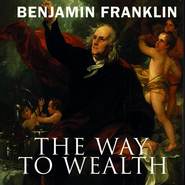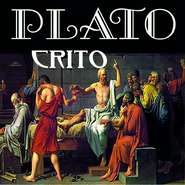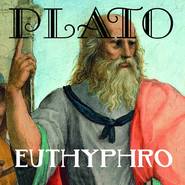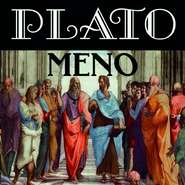Stacey Patterson
Книги чтеца: Stacey Patterson
Aristotle's Poetics (Greek: Περὶ ποιητικῆς; Latin: De Poetica) is the earliest surviving work of dramatic theory and first extant philosophical treatise to focus on literary theory. In it, Aristotle offers an account of what he calls «poetry» (a term…
Aristotle's Poetics (Greek: Περὶ ποιητικῆς; Latin: De Poetica) is the earliest surviving work of dramatic theory and first extant philosophical treatise to focus on literary theory. In it, Aristotle offers an account of what he calls «poetry» (a term…
Phædo or Phaedo (Greek: Φαίδων, Phaidōn), also known to ancient readers as On The Soul, is one of the best-known dialogues of Plato's middle period, along with the Republic and the Symposium. The philosophical subject of the dialogue is the immortali…
Phædo or Phaedo (Greek: Φαίδων, Phaidōn), also known to ancient readers as On The Soul, is one of the best-known dialogues of Plato's middle period, along with the Republic and the Symposium. The philosophical subject of the dialogue is the immortali…
The Autobiography of Benjamin Franklin is the traditional name for the unfinished record of his own life written by Benjamin Franklin from 1771 to 1790; however, Franklin himself appears to have called the work his Memoirs. Although it had a tortuous…
The Autobiography of Benjamin Franklin is the traditional name for the unfinished record of his own life written by Benjamin Franklin from 1771 to 1790; however, Franklin himself appears to have called the work his Memoirs. Although it had a tortuous…
The Way to Wealth is an essay written by Benjamin Franklin in 1758. It is a collection of adages and advice presented in Poor Richard's Almanac during its first 25 years of publication, organized into a speech given by «Father Abraham» to a group of …
The Way to Wealth is an essay written by Benjamin Franklin in 1758. It is a collection of adages and advice presented in Poor Richard's Almanac during its first 25 years of publication, organized into a speech given by «Father Abraham» to a group of …
Crito (Ancient Greek: Κρίτων [krítɔːn]) is a dialogue by the ancient Greek philosopher Plato. It depicts a conversation between Socrates and his wealthy friend Crito regarding justice (δικαιοσύνη), injustice (ἀδικία), and the appropriate response to …
Crito (Ancient Greek: Κρίτων [krítɔːn]) is a dialogue by the ancient Greek philosopher Plato. It depicts a conversation between Socrates and his wealthy friend Crito regarding justice (δικαιοσύνη), injustice (ἀδικία), and the appropriate response to …
Euthyphro (Ancient Greek: Εὐθύφρων, romanized: Euthyphrōn; c. 399–395 BC), by Plato, is a Socratic dialogue whose events occur in the weeks before the trial of Socrates (399 BC), between Socrates and Euthyphro. The dialogue covers subjects such as th…
Euthyphro (Ancient Greek: Εὐθύφρων, romanized: Euthyphrōn; c. 399–395 BC), by Plato, is a Socratic dialogue whose events occur in the weeks before the trial of Socrates (399 BC), between Socrates and Euthyphro. The dialogue covers subjects such as th…
Meno (Greek: Μένων, Menōn) is a Socratic dialogue scripted by Plato. It appears to attempt to determine the definition of virtue, or arete, meaning virtue in general, rather than particular virtues, such as justice or temperance. The first part of th…
Meno (Greek: Μένων, Menōn) is a Socratic dialogue scripted by Plato. It appears to attempt to determine the definition of virtue, or arete, meaning virtue in general, rather than particular virtues, such as justice or temperance. The first part of th…


